BAND
$ 0.239 USD
$ 0.239 USD
$ 42.802 million USD
$ 42.802m USD
$ 3.391 million USD
$ 3.391m USD
$ 40.251 million USD
$ 40.251m USD
171.865 million BAND
Band Protocol-related information
Issue Time
2019-09-19
Platform pertained to
--
Current coin price
$0.239USD
Market Cap
$42.802mUSD
Volume of Transaction
24h
$3.391mUSD
Circulating supply
171.865mBAND
Volume of Transaction
7d
$40.251mUSD
Change
24h
-5.8%
Number of Markets
342
Crypto token price conversion
Current Rate0
0.00USD
BAND Price Chart
Band Protocol introduction
 Markets
Markets3H
-2.37%
1D
-5.8%
1W
-7.15%
1M
-28.17%
1Y
-75.55%
All
-98.59%
| Aspect | Information |
|---|---|
| Short Name | BAND |
| Full Name | BAND Protocol |
| Founded Year | 2017 |
| Main Founders | Soravis Srinawakoon, Sorawit Suriyakarn, Paul Nattapatsiri |
| Support Exchanges | Binance, Coinbase, Huobi, Kraken |
| Storage Wallet | MetaMask, MyEtherWallet, Ledger |
Overview of BAND
BAND Protocol is a cryptocurrency identified by the short name BAND. Founded by Soravis Srinawakoon, Sorawit Suriyakarn, and Paul Nattapatsiri in 2017, the project focuses on providing decentralized, secure and scalable oracle solutions for a variety of blockchain applications. BAND tokens are supported by several major exchanges, including Binance, Coinbase, Huobi, and Kraken. In terms of storage, BAND tokens can be stored in a variety of wallets, including MetaMask, MyEtherWallet, and Ledger. Emerging as a competitor to other oracle service providers, BAND Protocol strives to connect real-world data and services with blockchain technologies.
Pros and Cons
| Pros | Cons |
|---|---|
| Support from major exchanges | Competitive market sector |
| Multiple storage options | Limited historical data due to relative newness |
| Decentralized and secure oracle solutions | Dependent on integration and wider adoption of the technology |
| Connection of real-world data with blockchain | Risk associated with cryptocurrency volatility |
BAND Price Prediction
The Band Protocol's price is predicted to fluctuate between $3.31 and $20.53 in 2030, with a potential trading range of $6.42 to $23.37 by 2040. By 2050, the projected minimum and maximum prices are approximately $9.51 and $26.21, respectively, with an anticipated average trading cost of around $13.24.
Exchanges to Buy BAND
Here are ten exchanges that support trading BAND, along with some of the token and currency pairs available on each.
1. Binance: Binance supports BAND token trading with a variety of pairs such as BAND/BTC, BAND/ETH, BAND/BNB, and BAND/USDT.
2. Coinbase Pro: On this platform, BAND can be traded against USD, BTC, and EUR pairs, thus encompassing BAND/USD, BAND/BTC, and BAND/EUR.
3. Huobi Global: This exchange provides options for trading BAND in a couple of pairs such as BAND/USDT and BAND/BTC.
4. Kraken: On Kraken, you can trade BAND against the USD and the EUR, i.e., BAND/USD and BAND/EUR.
5. Crypto.com Exchange: BAND can be traded against USDT, CRO, and BTC on this platform, hence the pairs BAND/USDT, BAND/CRO, and BAND/BTC.
6. KuCoin: Here, the available trading pairs are BAND/BTC and BAND/USDT.
7. Bithumb: On Bithumb, BAND's trading pairs include BAND/KRW.
8. BitMax: BAND can be traded against USDT on BitMax, providing the BAND/USDT pair.
9. OKEx: This exchange supports a couple of trading pairs for BAND which include BAND/USDT, BAND/BTC and BAND/ETH.
10. Poloniex: On Poloniex, the BAND token can be traded against USDT, creating the BAND/USDT trading pair.
How to Store BAND?
BAND tokens can be stored in a variety of digital wallets that support custody of ERC-20 tokens, as BAND is an ERC-20 token based on the Ethereum blockchain. Here are several wallet types users may consider:
1. Software wallets: These exist as applications on your desktop or mobile device. They provide easy access and usually come with a user-friendly interface. Examples for BAND include:
- MetaMask: This is a browser extension wallet for Google Chrome, Firefox, and Brave. It is one of the most commonly used wallets for interacting with Ethereum-based tokens like BAND.
- MyEtherWallet: This is a free, open-source, client-side interface that helps you interact with the Ethereum blockchain.
2. Hardware wallets: These wallets are physical devices that store your private keys offline, providing an extra layer of security. Examples include:
- Ledger: Ledger offers a couple of models (the Ledger Nano S and Ledger Nano X) that provide a safe place to store BAND tokens, keeping them offline and less susceptible to hacks.
- Trezor: This is another common hardware wallet option which is compatible with ERC-20 tokens.
3. Online wallets: Online wallets or web wallets run on the cloud, are accessible from any computing device, and offer convenience. However, they also have increased security risks when compared to hardware wallets. MyEtherWallet also provides an online wallet service.
4. Mobile wallets: These are basically software wallets specifically designed for smartphones. They often offer the best combination of convenience and security, especially those that allow users to control their private keys.
5. Paper wallets: These are a form of cold, offline storage where a private key is printed on a piece of paper and stored safely. However, the use of paper wallets for storing ERC-20 tokens like BAND can be technically complex and are not commonly used.
Should You Buy BAND?
Investing in BAND might be appropriate for those who have a clear understanding of the decentralized oracle market, as well as the broader cryptocurrency environment. Given its role in facilitating the use of real-world data in smart contracts, individuals or institutions with an interest in the development of blockchain technology and its applications may find value in it.
FAQs
Q: What is the primary function of BAND Protocol?
A: BAND Protocol primarily functions as a decentralized oracle, connecting real-world data and services with blockchain technologies.
Q: How does BAND Protocol differentiate itself from other cryptocurrencies?
A: BAND Protocol differentiates itself by focusing on the provision of decentralized oracle solutions rather than acting solely as a digital asset.
Q: What type of consensus mechanism is used by BAND Protocol?
A: BAND Protocol uses a delegated proof of stake (dPoS) consensus mechanism.
Q: Is it possible to predict the future price of BAND tokens?
A: Predicting the future price of BAND tokens with certainty is impossible due to the various factors affecting cryptocurrency prices, including market demand, regulatory circumstances, technological updates, and economic conditions.
Q: What type of investor should consider buying BAND?
A: Investors with a comprehensive understanding of both the decentralized oracle market and the broader cryptocurrency market might consider investing in BAND.
BAND Good investment market
- 1
- 2
- 3
- 4
- 5
Band Protocol User Reviews
Band Protocol News
TokenShiba Inu Analysis for Jan 15: Shiba Inu Must Hold Above This Bollinger Band Support: Whats Next?
Shiba Inu must hold above the middle Bollinger Band support to reverse the current price action.Shib
2026-01-15 19:02
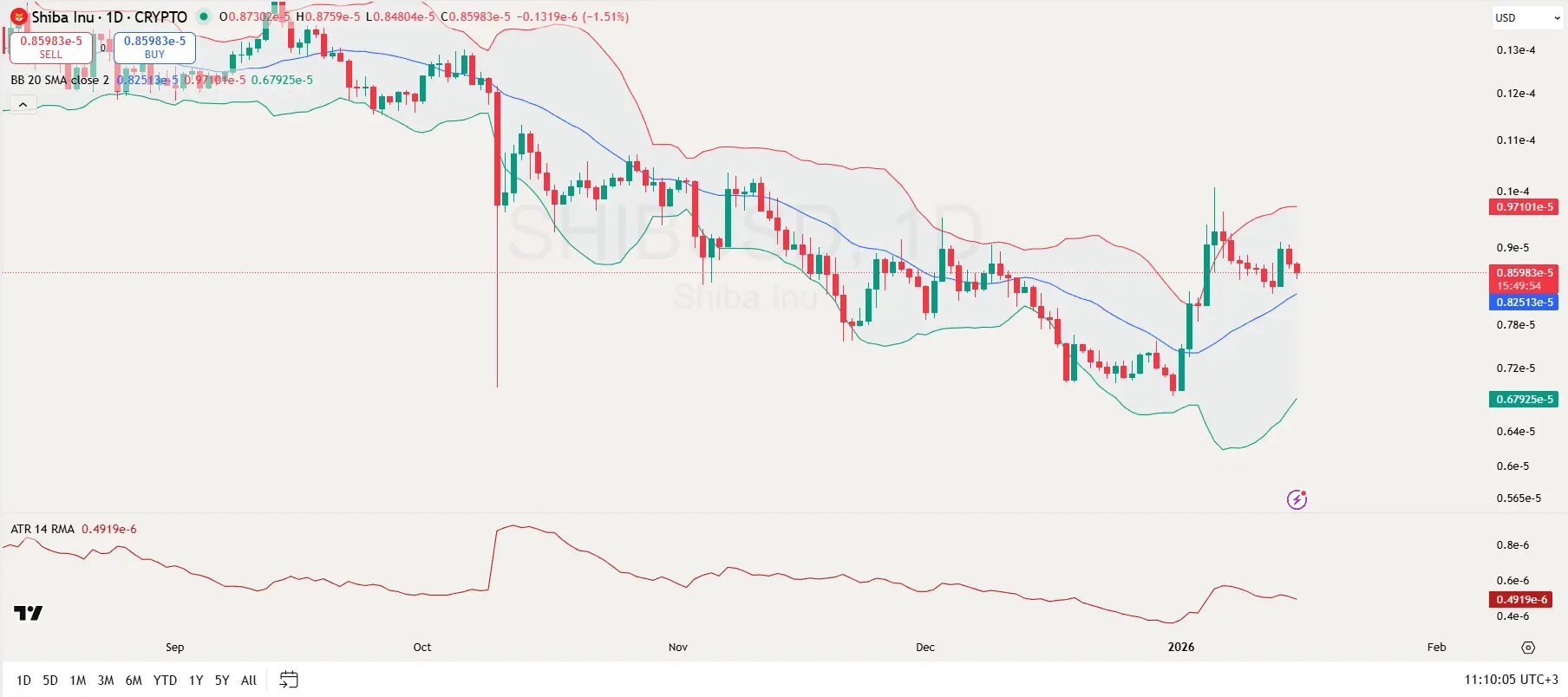
TokenDogecoin Breaks Its ‘Lower-Band Prison’ As Daily Trend Flips
The Dogecoin price is currently up by approximately 17% since the December 31 low and the rebound is
2026-01-13 06:02
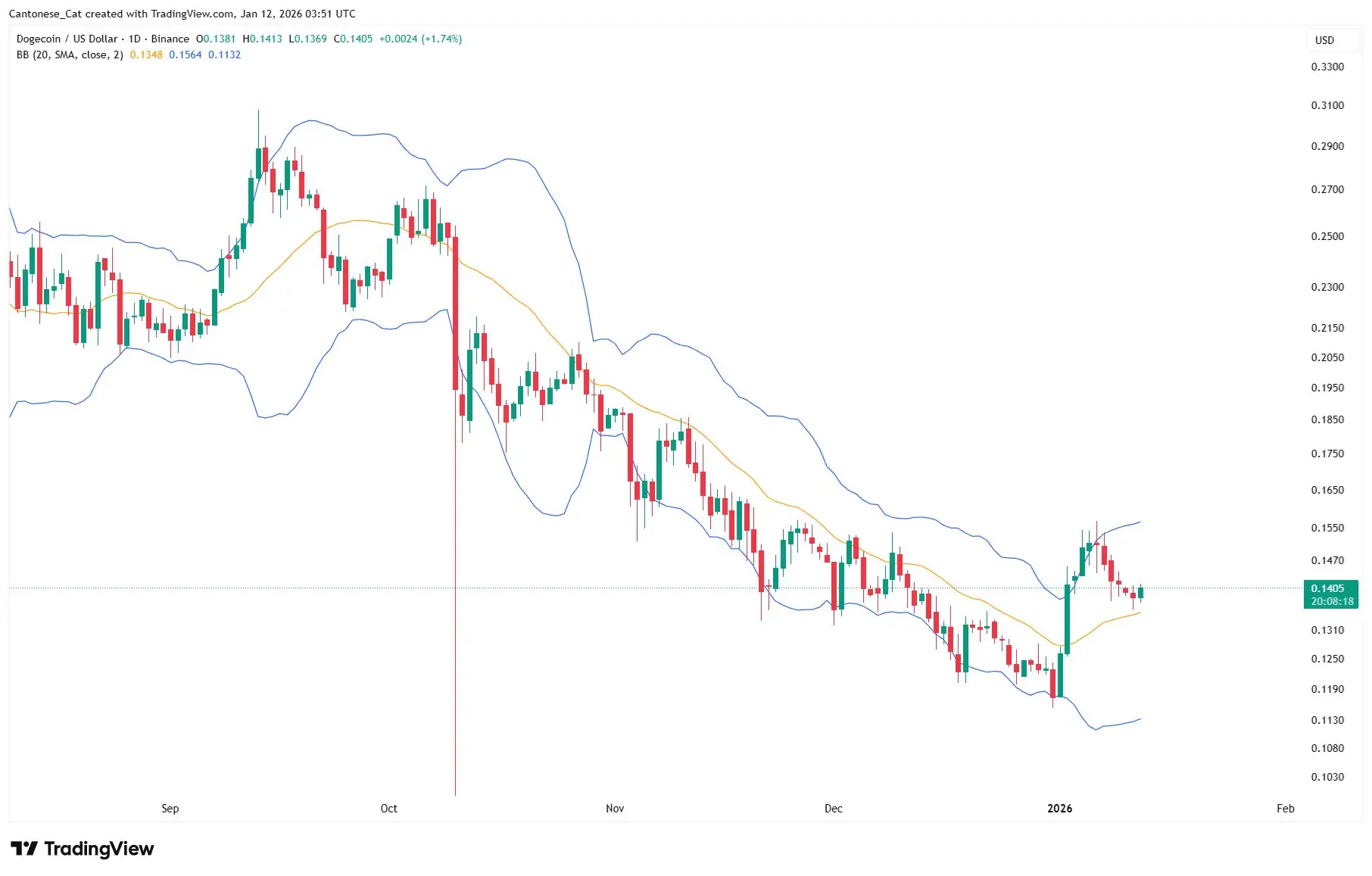
TokenShiba Inu Forecast for Jan 9: Where Next After SHIB Tests Weekly Bollinger Band Resistance?
Shiba Inu tests the weekly Bollinger Band resistance, with positive short-term momentum, but faces k
2026-01-09 20:03
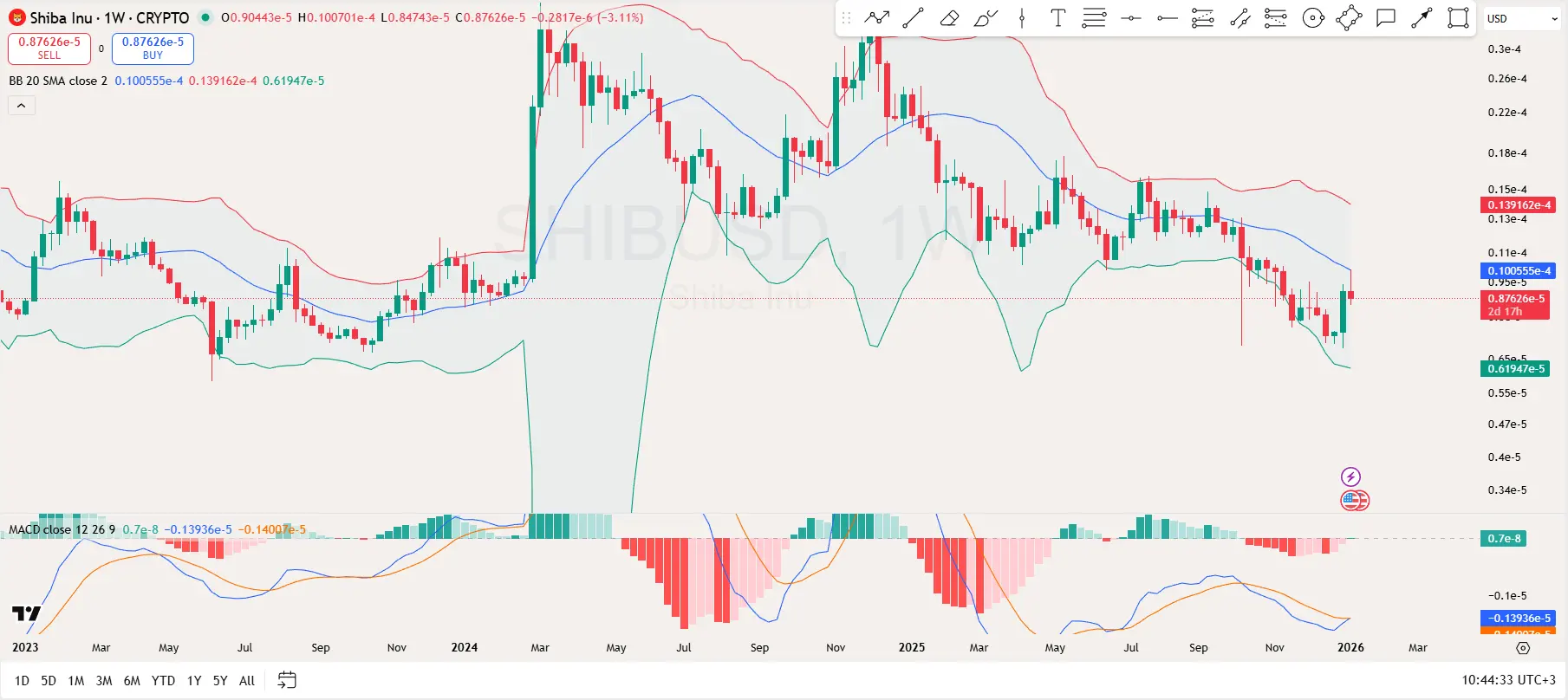
TokenEthereum Prediction for Dec 5: Where Next After ETH Breaks Bollinger Band Resistance?
Ethereum breaks Bollinger Band resistance, signaling bullish momentum, but an analyst awaits a 30% p
2026-01-05 21:03
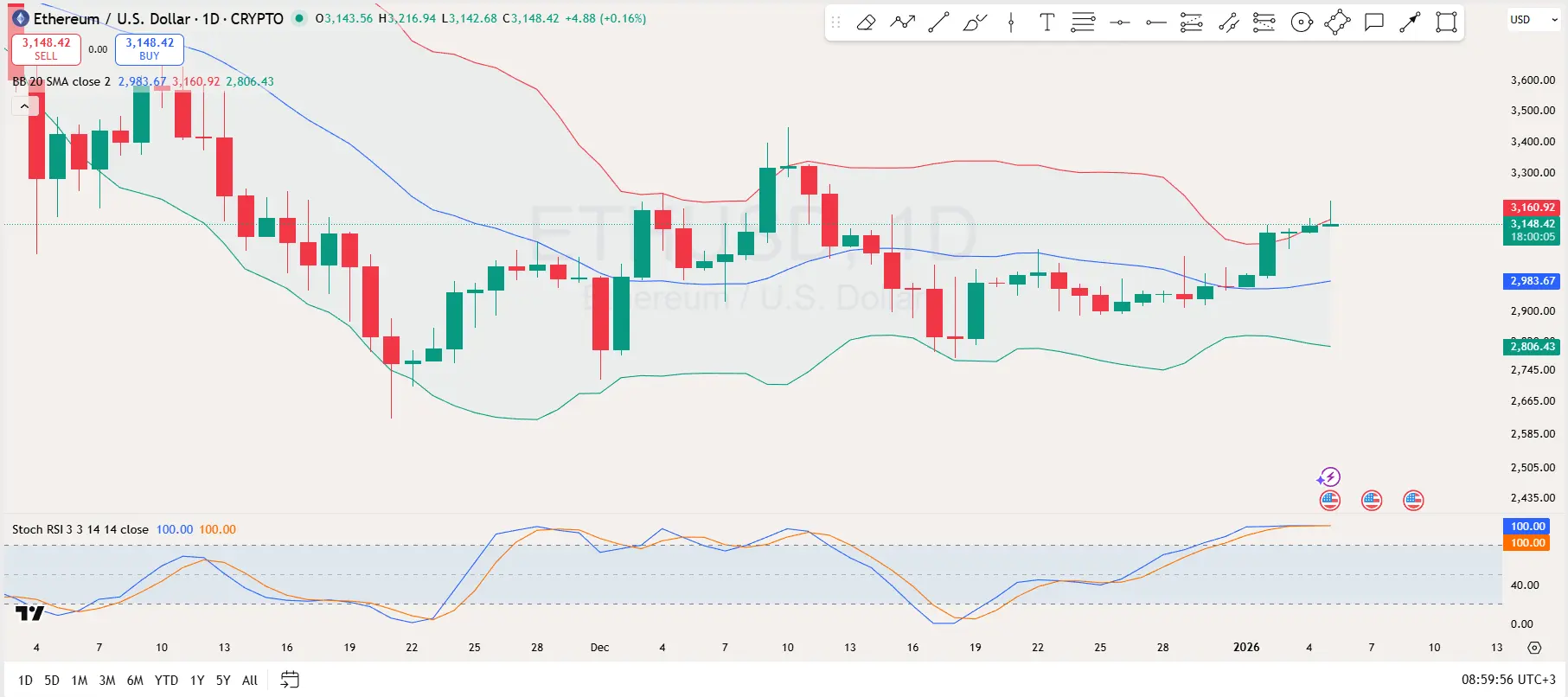
TokenWheres Ethereum Headed as Price Stalls at Middle Bollinger Band?
Ethereum hovers at the middle Bollinger Band as support holds, and fresh liquidations hint at a frag
2025-12-03 06:03
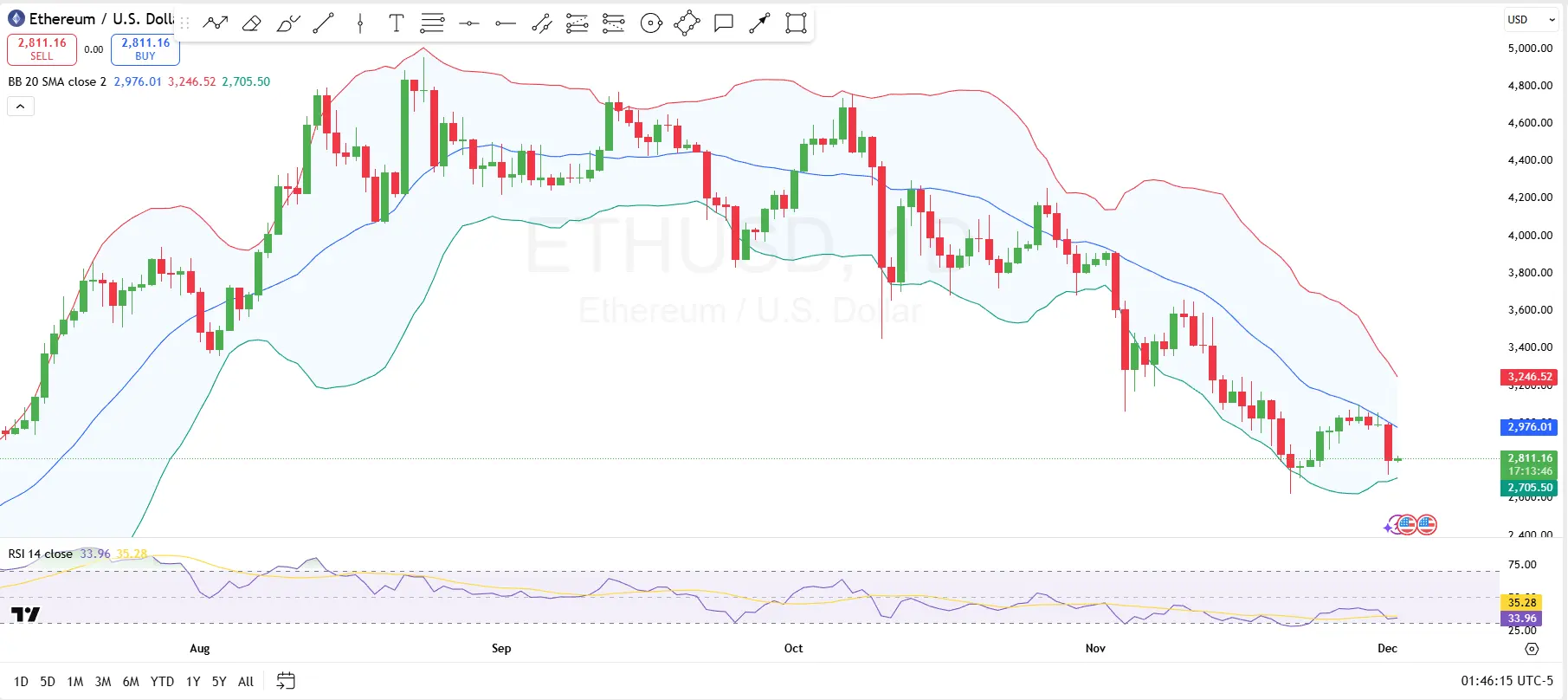
TokenIs Cardano Forming a Base as It Hovers at Weekly Lower Bollinger Band?
Cardano trades near its weekly lower Bollinger Band, signaling strong downside pressure with the mid
2025-11-25 05:02

TokenEthereum Support Band Under Pressure — Can Bulls Revive Momentum From $3,700?
Ethereum is once again testing the strength of its key support band around the $3,700 zone, a level
2025-11-01 05:03

TokenBand Protocol Joins Celo Alfajores L2 for Decentralized Price Data
Band Protocol integrates with Celo Alfajores L2 to enhance DeFi applications with accurate decentral
2024-12-14 21:04

TokenBand Protocol Integrates with Astars Ink to Enhance Oracle Services in Polkadot Ecosystem
Band Protocol, a leader in decentralized data oracles, has taken a significant stride forward by int
2024-07-26 04:05



15 ratings